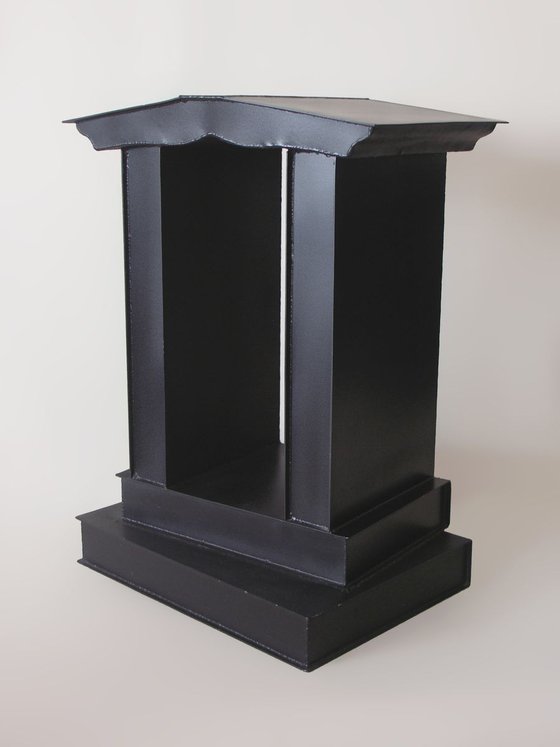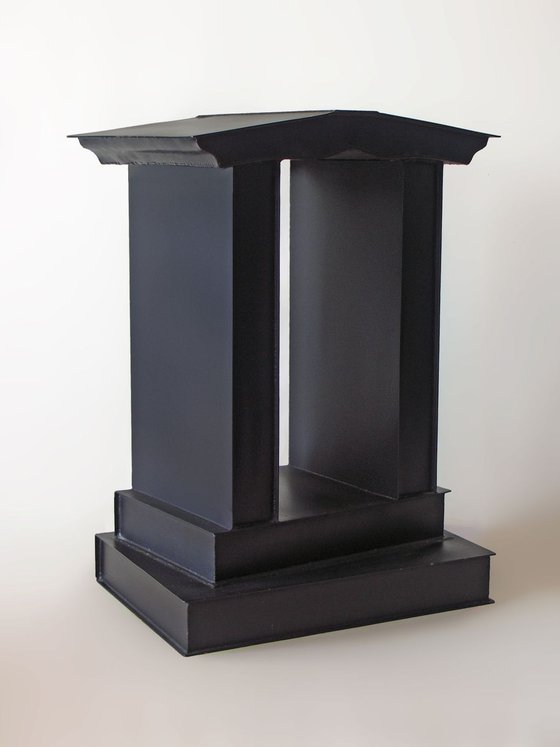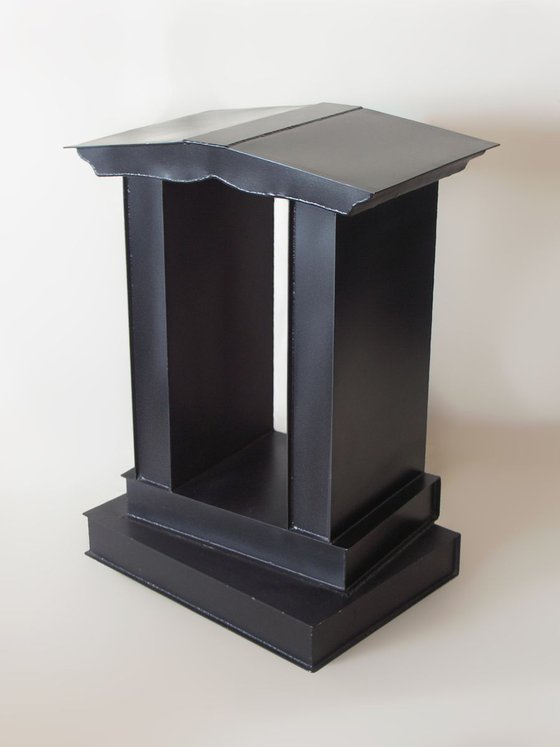- By medium
- By subject
- By budget
- Sales
- Gift cards
- Discover all art
- Artists
- Editors’ picks
- Ideas
Original artwork description:
I made this piece as a part of my cycle entitled 'Ad Libris' first presented on a solo show at the 'Belgrade' Gallery, Belgrade, Serbia. The location of the Gallery, across the now vanished National Library inspired its major theme--books.
Djordje Aralica, Ad libris
The age of electronic media has brought the book in its traditional form to the verge of extinction. Printed book, codex, rapidly vanishes from the public sphere, losing the battle with its digital versions. By underscoring the materiality of the bound and printed page, Djordje Aralica’s sculptural cycle entitled Ad libris offers a pause and provides an opportunity to gain an insight into the realities of today. Against the immateriality and elusiveness of the digital realm, Aralica’s solid sculptural forms executed in metal with visible welds convey physical presence and longevity of his sculptures–books. Aralica carefully controls every mark and physical detail. By unconventionally combining materials like rope and steel, the artist emphasizes the sensual nature of the traditional art of bookbinding. Books in Aralica's world create their own space – its constituents are themselves bound together, chained, mobile, twisted, and tactile. His sculptures offer an invitation to interact – to move them, roll them, leave fingerprints on them. They, at the same time, deny our interference – their pages do not turn. Being without text that would transfer the reader to another time and space, Aralica's books become silent witnesses of a passing era.
Ljubomir Milanović, PhD, Art Historian
The Institute for Byzantine Studies, SASA, Belgrade
Materials used:
Metal, black paint
Tags:
#black and white #minimalism #black #minimal #architecture #minimalist #books #history #temple #culture #libraryHouse of Books Sculpture
by Djordje Aralica
£2,788.36
- Sculpture on Other
- One of a kind artwork
- Size: 38 x 50 x 26cm
- Signed certificate of authenticity
- Style: Abstract
- Subject: Abstract and non-figurative
Loading
Original artwork description
I made this piece as a part of my cycle entitled 'Ad Libris' first presented on a solo show at the 'Belgrade' Gallery, Belgrade, Serbia. The location of the Gallery, across the now vanished National Library inspired its major theme--books.
Djordje Aralica, Ad libris
The age of electronic media has brought the book in its traditional form to the verge of extinction. Printed book, codex, rapidly vanishes from the public sphere, losing the battle with its digital versions. By underscoring the materiality of the bound and printed page, Djordje Aralica’s sculptural cycle entitled Ad libris offers a pause and provides an opportunity to gain an insight into the realities of today. Against the immateriality and elusiveness of the digital realm, Aralica’s solid sculptural forms executed in metal with visible welds convey physical presence and longevity of his sculptures–books. Aralica carefully controls every mark and physical detail. By unconventionally combining materials like rope and steel, the artist emphasizes the sensual nature of the traditional art of bookbinding. Books in Aralica's world create their own space – its constituents are themselves bound together, chained, mobile, twisted, and tactile. His sculptures offer an invitation to interact – to move them, roll them, leave fingerprints on them. They, at the same time, deny our interference – their pages do not turn. Being without text that would transfer the reader to another time and space, Aralica's books become silent witnesses of a passing era.
Ljubomir Milanović, PhD, Art Historian
The Institute for Byzantine Studies, SASA, Belgrade
Materials used:
Metal, black paint
Tags:
#black and white #minimalism #black #minimal #architecture #minimalist #books #history #temple #culture #library14 day money back guaranteeLearn more



